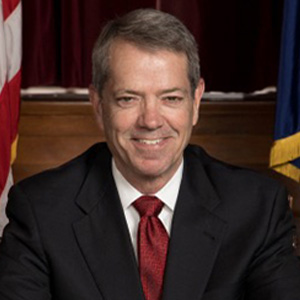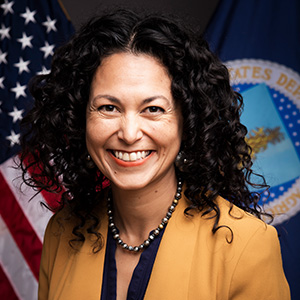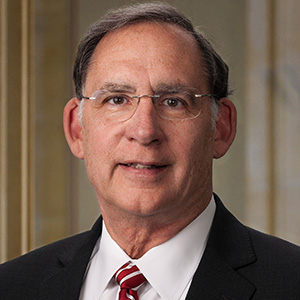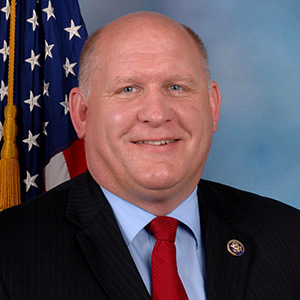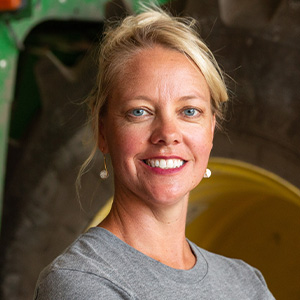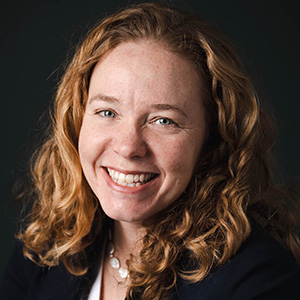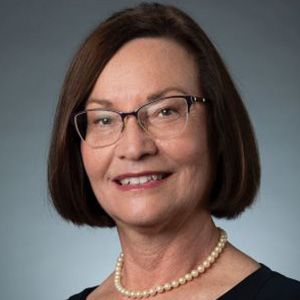Thank you to all speakers, sponsors, and attendees who made the PBPC 2023 Annual Conference: Circular Solutions possible. Check the #PBPC2023Conference hashtag for more photos from the event.
The PBPC 2023 Annual Conference: Circular Solutions was held Mar. 27-29, 2023, at the JW Marriott in Washington, D.C. Owned and produced by the Plant Based Products Council, PBPC2023: Circular Solutions featured keynote addresses, expert panels, and breakout sessions to explore the innovations, business models, and policies influencing the entire lifecycle of bioproducts in support of a more circular economy. Keynote speakers included: Xochitl Torres Small, Under Secretary for Rural Development, USDA; Dr. Dominique Carter, Assistant Director for Agricultural Sciences, Innovation, and Workforce, White House Office of Science and Technology Policy; and Jim Pillen, Governor of Nebraska.
“PBPC’s inaugural conference was an amazing success, and we are grateful to our speakers and attendees who came together to share insights, solutions, and ideas to advance the bioeconomy,” said Jessica Bowman, Executive Director of PBPC. “This is an incredibly important time for our industry. Scientists are developing, and manufacturers are leveraging, bioproduct innovations at a rapid pace. It’s critical that our policy infrastructure supports this growing sector to realize its full environmental and economic potential.”
Xochitl Torres Small, Under Secretary for Rural Development, USDA, opened the conference with a keynote address. “Through both our existing programs and future partnerships, Secretary Vilsack and President Biden are committed to working with the plant-based products industry to reach our goals for economic development and environmental stewardship,” said Under Secretary Torres Small. “This Administration knows that biobased products are key to reaching the federal government’s goal of reducing greenhouse gas emissions by 65% by 2030 and being carbon-neutral by 2050.”
Jim Pillen, Governor of Nebraska, emphasized the impact plant-based products have had on Nebraska, spurring economic activity and growth. Thanks to the bioeconomy “there are going to be extraordinary opportunities all over the state of Nebraska. We’re just getting started,” he said.
During the conference’s closing keynote, Dr. Dominique Carter, Assistant Director for Agricultural Sciences, Innovation, and Workforce at the White House Office of Science and Technology Policy, reinforced the promise of the plant-based products industry in the years ahead. Dr. Carter detailed how President Biden’s Executive Order on Advancing Biotechnology and Biomanufacturing Innovation for a Sustainable, Safe, and Secure American Bioeconomy plays a critical role for key players in the industry. “Because of the intentionality of this Administration, I see America being revered as a leader in innovation in this space,” said Dr. Carter. “I see the production of biobased products across sectors being generated at a level that receives global recognition.”
During the breakout session, “Driving Plant-Based Product Feedstock Diversity,” Jamaica Gayle, Senior Manager of Sustainability at PBPC, moderated a discussion with Erica Stark, Executive Director of the National Hemp Association, Julia Marsh, Co-founder and CEO of Sway, and Wendy Owens, Founder and CEO of Hexas Biomass. Marsh reinforced that Sway, a venture-backed biomaterials company that recently won the Tom Ford Plastic Innovation Prize, creates “an opportunity to shift packaging from something as potential waste to something as potential life.” Debunking the myth that biobased products always cost more than their petroleum counterparts, Owens noted that, because Hexas’ grass fiber technology “is such a low input product and we can use traditional farming equipment, we are definitely competitive. It’s generally 20% less expensive.”
Ian Jacobsen, President of Eco-Products and a PBPC Board Member, moderated the breakout session, “Organics Diversion and Compostable Products: A Review of Current Opportunities and Challenges.” Panelists included Rhodes Yepsen, Executive Director of Biodegradable Products Institute, Linda Norris-Waldt, Deputy Director of the U.S. Composting Council, and Graham Givens, Senior Sustainability Manager of Foodbuy. Digging into obstacles facing compostable food service ware, Jacobsen raised the issue of regulated definitions of what can and can’t be composted. Yepsen pointed to the role of the federal government, posing the questions: “at what point is a definition guidance, and at what point does a definition become binding? And what can the federal government do in those definitions?”
On the third and final day, Robin Bowen, Vice President of External Affairs at PBPC, moderated the panel “Ag Bioeconomy Coalition Farm Bill Priorities.” Panelists included representatives from founding member companies of the Ag Bioeconomy Coalition, including Jamaica Gayle; Erica Stark; Alexa Combelic, Director of Government Affairs of the American Soybean Association; and Troy Bredenkamp, Senior Vice President of Government and Public Affairs at the Renewable Fuels Association. When looking at the biggest obstacles facing the industry, Combelic said, “Across all of our industries, the idea that our products are not as good as the petroleum counterparts is not correct, and the proof is in the performance. D.C.’s public utilities fleet uses soybean-based tires … The ability to show that performance has been really key for our industry.”
Exploring the ground-level work being done to make growth of the bioeconomy possible, Sarah Jelken, Vice President of Starches, Sweeteners, and Texturizers North America at Cargill, moderated the “States Investing in the Ag-Based Bioeconomy” panel. Attendees heard from Anthony Goins, Director of the Nebraska Department of Economic Development; Sherry Vinton, Director of the Nebraska Department of Agriculture; Megan Lennon, Energy and Environment Section Supervisor at the Minnesota Department of Agriculture; and Josie Montoney-Crawford, Manager of Public Policy at the National Association of State Departments of Agriculture. Reinforcing the importance of upstream agricultural investments at the state-level, Montoney-Crawford noted that “farmers are the original conservationists, and there’s an incentive to invest back into the land. This isn’t something we’re just talking about.”
In recorded remarks, Congressman Glenn “GT” Thompson, Chairman of the House Committee on Agriculture, shared: “Through my travels to more than 40 states over the last two years, one thing I’ve heard directly from those who feed and fuel the world is the need to expand agricultural markets so that our producers can remain competitive.” When looking towards the next Farm Bill, Chairman Thompson reinforced that he is “committed to being a Chairman for all of American agriculture, and will pursue all agenda items through the lens of science, technology, and innovation. The plant-based products industry is a prime example of agricultural innovation, and I look forward to working with all of you.”
Senator John Boozman, Ranking Member of the Senate Committee on Agriculture, also shared in recorded remarks that with census data showing population decline in rural America, “the past few years have not been easy on agricultural producers.” However, Senator Boozman noted, “we can change this trend. The family farms that color the landscape of rural America are the cornerstone for a better, more sustainable future. We must seek solutions to build up rural economies, stabilize and diversify our markets, and secure livelihoods in these regions.” Senator Boozman reinforced that this is where the plant-based products industry comes in: “Pioneering new, alternative uses for renewable biomass will have a positive impact for our rural economies. That type of producer focus will be what we need to bring into this upcoming Farm Bill.”
Congressman David Scott, Ranking Member of the House Committee on Agriculture, shared written remarks that included: “The promise of the plant-based product industry cannot be overstated. The investments made in domestic supply chains and the bioeconomy directly benefit our rural communities by creating jobs, economic growth, and opportunity. These investments, especially those that utilize the innovation of the American agricultural sector to produce new and more sustainable inputs and products, help our farmers by utilizing agricultural residue and can be helpful to our foresters when utilizing woody biomass. And ultimately, increasing domestic manufacturing benefits Americans across the board.”
Conference sponsors included BioP2P Network, Biodegradable Products Institute, Braskem, Eco-Products, National Corn Growers Association, and NatureWorks.
featured speakers
Sponsors















